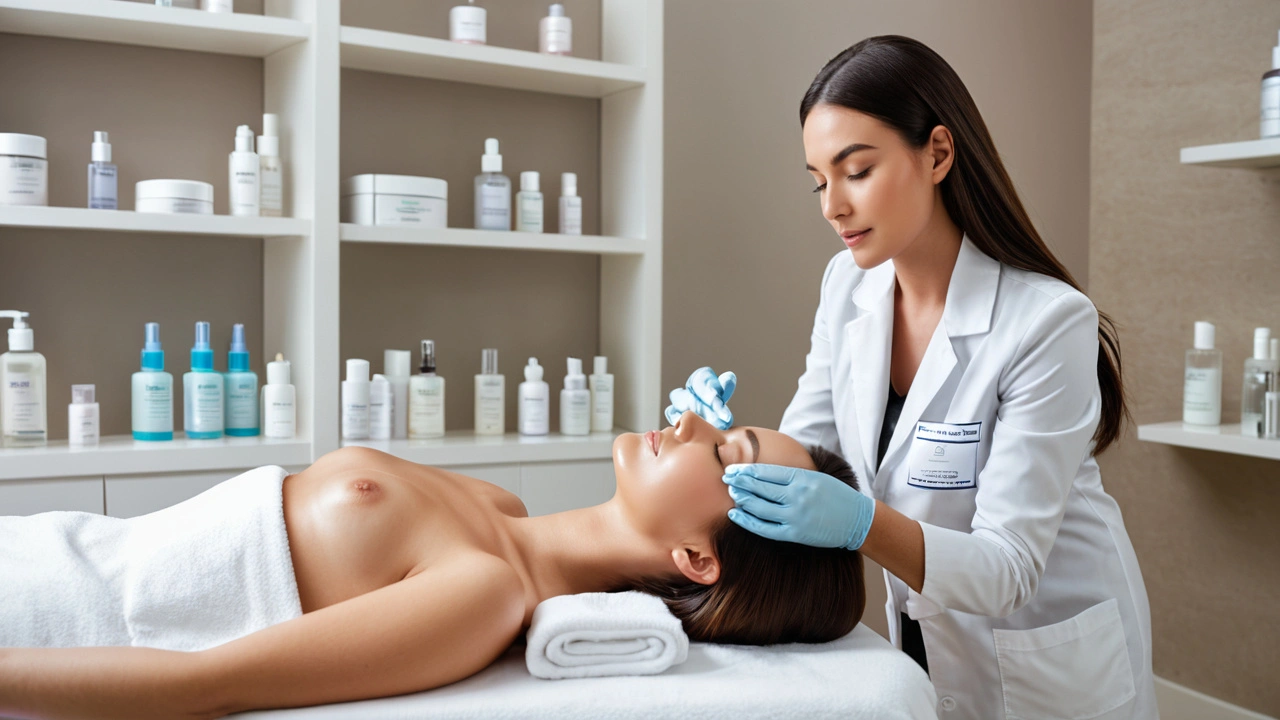Skincare Tips That Actually Work — Daily Habits for Better Skin
You can fix a lot of stubborn skin issues by changing a few daily habits. This page gives clear, practical steps you can start today — no confusing jargon, no miracle promises. Follow these basics and you'll see steady improvement.
Daily routine: simple and consistent
Cleanse gently twice a day: morning and night. Use a mild cleanser that doesn’t strip your skin. If your skin is dry, skip the morning wash and rinse with water. Pat your face dry — never rub.
Moisturize while damp. Apply a lightweight, non-comedogenic moisturizer after cleansing to lock in hydration. For dry skin, choose a thicker cream with ceramides or hyaluronic acid. For oily skin, pick a gel or lotion labeled “oil-free.”
Use sunscreen every day. Pick SPF 30 or higher and reapply every two hours if you’re outside. Sun protection prevents dark spots, wrinkles, and many long-term problems. Broad-spectrum sunscreen (UVA/UVB) is the one to buy.
Treat problems smartly
Acne? Try products with salicylic acid, benzoyl peroxide, or a retinoid at night. Start slowly to avoid irritation. If over-the-counter options don’t help after 8–12 weeks, see a dermatologist. Our guide on alternatives for acne treatments lists safe, proven options if a product like Isofair isn’t right for you.
Eczema or inflamed skin needs a gentler approach. Avoid harsh soaps, hot showers, and fragrance-heavy products. Emollients and barrier creams help between flares. For stubborn eczema, a topical prescription like Elidel (pimecrolimus) can work — check our Elidel guide to learn how it’s used and what to expect.
Patch test new actives. Put a small amount of any active product on your inner forearm for 48 hours before using it on your face. If you get redness or itching, stop.
Don’t over-exfoliate. Two exfoliation sessions a week is enough for most people. Overdoing it strips oils and weakens your skin barrier, which makes acne and irritation worse.
Layer products in the right order: cleanser → treatment serums (thin to thick) → moisturizer → sunscreen. Use retinoids at night and vitamin C or niacinamide in the morning if you use both.
Buy prescription meds safely. If you need a prescription product, talk to your doctor and use a licensed pharmacy. We cover how to spot safe online pharmacies and avoid risky sellers in our pharmacy safety articles.
When to see a pro: if acne is scarring, eczema is bleeding or infected, or home care doesn’t help after a few months. A dermatologist can suggest prescription options, light therapy, or procedures that work faster than OTC fixes.
Small changes matter: consistent cleansing, daily SPF, a targeted active for your concern, and a steady moisturizer will improve most skin problems over time. Keep it simple, stick to what works, and ask a clinician when things don’t get better.

The Ultimate Guide to Chemical Peels for Acne Treatment
Chemical peels can be a game-changer for those battling acne. This article dives into what chemical peels are, their benefits, types, and what to expect during and after the treatment. You'll also learn about potential side effects and aftercare tips to ensure you get the best results.
Read more